Search
Remove Ads
Advertisement
Search Results
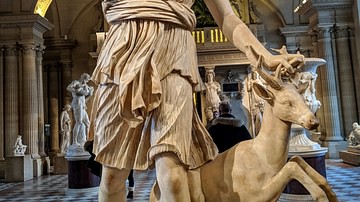
Definition
Artemis
Artemis was the Greek goddess of hunting, wild nature, and chastity. Daughter of Zeus and sister of Apollo, Artemis was a patron of girls and young women, and a protectress during childbirth. Artemis was widely worshipped but her most famous...
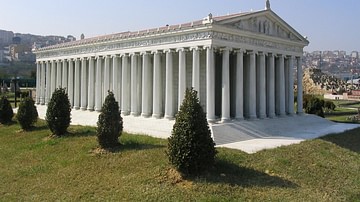
Definition
Temple of Artemis at Ephesus
The Temple of Artemis at Ephesus was located on the western coast of Asia Minor (modern Turkey) and built in the 6th century BCE. Such was its tremendous size, double the dimensions of other Greek temples including the Parthenon, that it...

Definition
Britomartis
Britomartis, also known as Diktynna (Dictynna), was the Cretan goddess of hunting and fishing nets in Greek mythology. Although referred to as a nymph and worshipped locally, she had at least two significant and active shrines, one in Crete...
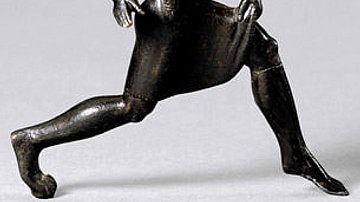
Article
Spartan Women
Spartan women had more rights and enjoyed greater autonomy than women in any other Greek city-state of the Classical Period (5th-4th centuries BCE). Women could inherit property, own land, make business transactions, and were better educated...
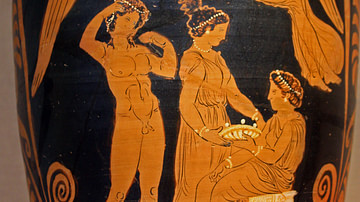
Definition
Hippolytus
Hippolytus is a tragedy written by Euripides (c. 484-407 BCE), one of the great Greek playwrights of the early 5th century BCE. As with many tragedies of the era, the central focus of Hippolytus is humanity's relationship with the gods. Hippolytus...
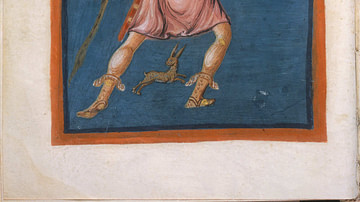
Definition
Orion
Orion was the great hunter of Greek mythology who was famed for his good looks and many love affairs. Either his assault of or admiration from Artemis resulted in the gods transforming the giant into a constellation. Referred to by such ancient...
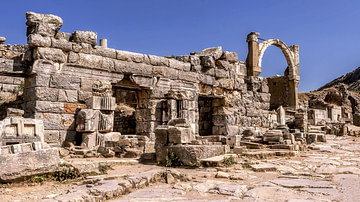
Definition
Ephesus
According legend, Ephesus (also Ephesos) was founded by the tribe of the Amazons, great female warriors. The name of the city is thought to have been derived from "Apasas", the name of a city in the "Kingdom of Arzawa" meaning the "city of...
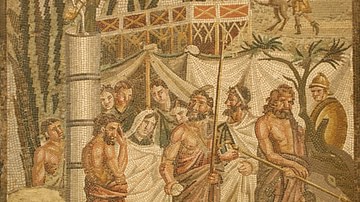
Definition
Iphigenia in Aulis
Iphigenia in Aulis (or at Aulis) was written by Euripides, the youngest and most popular of the trilogy of great Greek tragedians. The play was based on the well-known myth surrounding the sacrifice of Agamemnon and Clytemnestra's daughter...

Image
Temple of Artemis, Ephesus
The lonely reconstructed column standing on the site of the Temple of Artemis at Ephesus. The Temple of Artemis, also known as the Artemesium, was constructed in the mid 6th century BCE and was considered to be one of the Seven Wonders of...

Article
A Visual Who's Who of Greek Mythology
Achilles The hero of the Trojan War, leader of the Myrmidons, slayer of Hector and Greece's greatest warrior, who sadly came unstuck when Paris sent a flying arrow guided by Apollo, which caught him in his only weak spot, his heel...